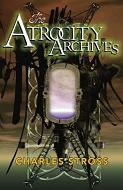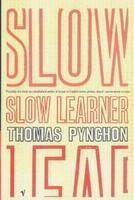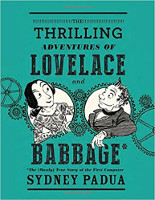 This is Charles Stross' first published novel – and to start, let's just make clear that it's a cracker. 'The Atrocity Archives' is a Secret Service/Spy story, with a heavily occult slant (it's all science, of course. But you knew that.), populated by math & IT geeks (as in the ones that will inherit the earth).
This is Charles Stross' first published novel – and to start, let's just make clear that it's a cracker. 'The Atrocity Archives' is a Secret Service/Spy story, with a heavily occult slant (it's all science, of course. But you knew that.), populated by math & IT geeks (as in the ones that will inherit the earth).
One of those geeks is Robert 'Bob' Howard, who works for the 'Laundry'. Now, the Laundry is a secret organization, which is why you haven't heard of it. It's secret under the Official Secrets Act (of which you might have heard), Section 3 (which is secret under the previous two sections, which is why you've never heard of it). The Laundry specializes in Bureaucracy like any good Civil Service, and in Black Ops style field work, with a focus on the Occult dangers to our world, and especially the United Kingdom (most of these dangers have to do with applied advanced mathematics. No, really).
Bob qualified himself for the Laundry (he was, like most members,forcibly recruited), as he worked out 'the geometry curve iteration method for invoking Nyarlathotep' – or, in the words of his boss, a way of 'landscaping Birmingham without planning permit'.
Owing to the blessings of Matrix-management he has two lines of responsibility – firstly to the mysterious Angleton, who seems to know and be able to affect more than is his share, and to Harriet (and thus her boss Bridget) who are the classic bean-counter-play-it-by-the-rules careerists (and thus a pain in some posterior body parts) that every civil service needs, and attracts in droves. This provides as much plot as it provides comical relief, especially at not being the person caught up in this matrix.
The story, you ask? Well, Bob is contemplating a switch from internal tech support (which he's good at) to field ops, where no-one knows if he's capable. So he's sent off on a training operation, of course without proper training beforehand (this makes sense is a bureaucracy, but is a deadly sin at the same time, as you might well know). His task is to make contact with Dr Dominique 'Mo' O'Brien, who, despite being a British Citizen, has problems with being allowed to emigrate from the US back to the UK. Of course this simple training mission doesn't go to plan, and we have a major faeco-ventilatory intersection event, with the involvement of the Mukhabarat (Iraqi secret police), remainders of the Ahnenerbe SS (Occult Arm of the Thule Society), impending Ragnarok and the return of the Ice Giants, and generally the future of the world as we know it being at stake. No, I won't tell you more, but yes, it's as much fun as this sounds.
Due to the Secret Service nature of the environment this plays in you get the usual Alphabet Soup (see Greg Bear's Quantico, or Stephen Bury's Cobweb for other classical examples of this), and of course the usual internal/external connections, secrets within secrets, and multiple organizations which work on the same side but against each other ('our enemies at MI5'). And you get frequent, self-conscious punning. Which, in this case, is a Good Thing.
The Universe this plays in has the simply premise that science is magic is science. We get an Everett-Wheeler-Grahame approach, with every possible universe existing in parallel. It is possible to exchange information, minds, or physical goods with other Universes if you have sufficient energy and know the correct spell/geometry (same thing) to open a suitable gate. And you get the good old tropes of Demonology, Wards, Summonings etc, (which are all scientific phenomena) when contacting what Bob calls EIs – External Intelligences.
You see, due to the above, there are multiple branches of Geometry and associated Mathematics which are out of bounds, and essentially treated as WMD. It all started with Turing's proof (not the one you have heard of, the one he did after), and, for example, that one would appear in Knuth's missing 4th volume – missing because the Laundry has an arrangement with him: he doesn't publish it, and they don't 'render him metabolically challenged'.
If this concept sounds familiar then that's because it has been done before (Powers, for example), and has been done since (Webber comes to mind), but it's done with elan, verve, oomph, and a good helping of clever and humorous one-liners that had me chuckle frequently, so I really don't mind. Example of the latter? Bob: 'I really don't like to treat basically nice people like they're the spawn of the Devil, or Microsoft salesmen'. Maybe you need to have worked in IT Support to appreciate. Maybe.
The story is told in a lackadaisical style, similar to Stephenson's 'Zodiac'. A lot of the time it's Bob who explains concepts, background, as well as what happens to the reader (this worked well for me), plus the odd case where Bob has something explained to himself by the powers that be, and who have a higher clearance, of course, and thus know and understand the bigger picture.
As I said at the beginning, this is Stross' first published book. It contains a second, short story set in the same universe (The Concrete Jungle - Hugo Awards winner for best Novella), and more of the same can be found on the Interwebs. His recent book 'The Jennifer Morgue' also plays in same universe. I don't think it really is a series per se, but I would recommend you start with this book – it sets the scene, and it's bloody good fun. Need any other reason?
Title: The Atrocity Archives
Series: Laundry
Series Number: 1
Author: Charles Stross
Reviewer: Markus
Reviewer URL: http://skating.thierstein.net
Publisher: Golden Gryphon Press
Publisher URL: goldengryphon.com
Review Date: 090215
ISBN: 9781930846258
Price: USD 24.95
Format: Hardback
Topic: SF
Topic: Horror












